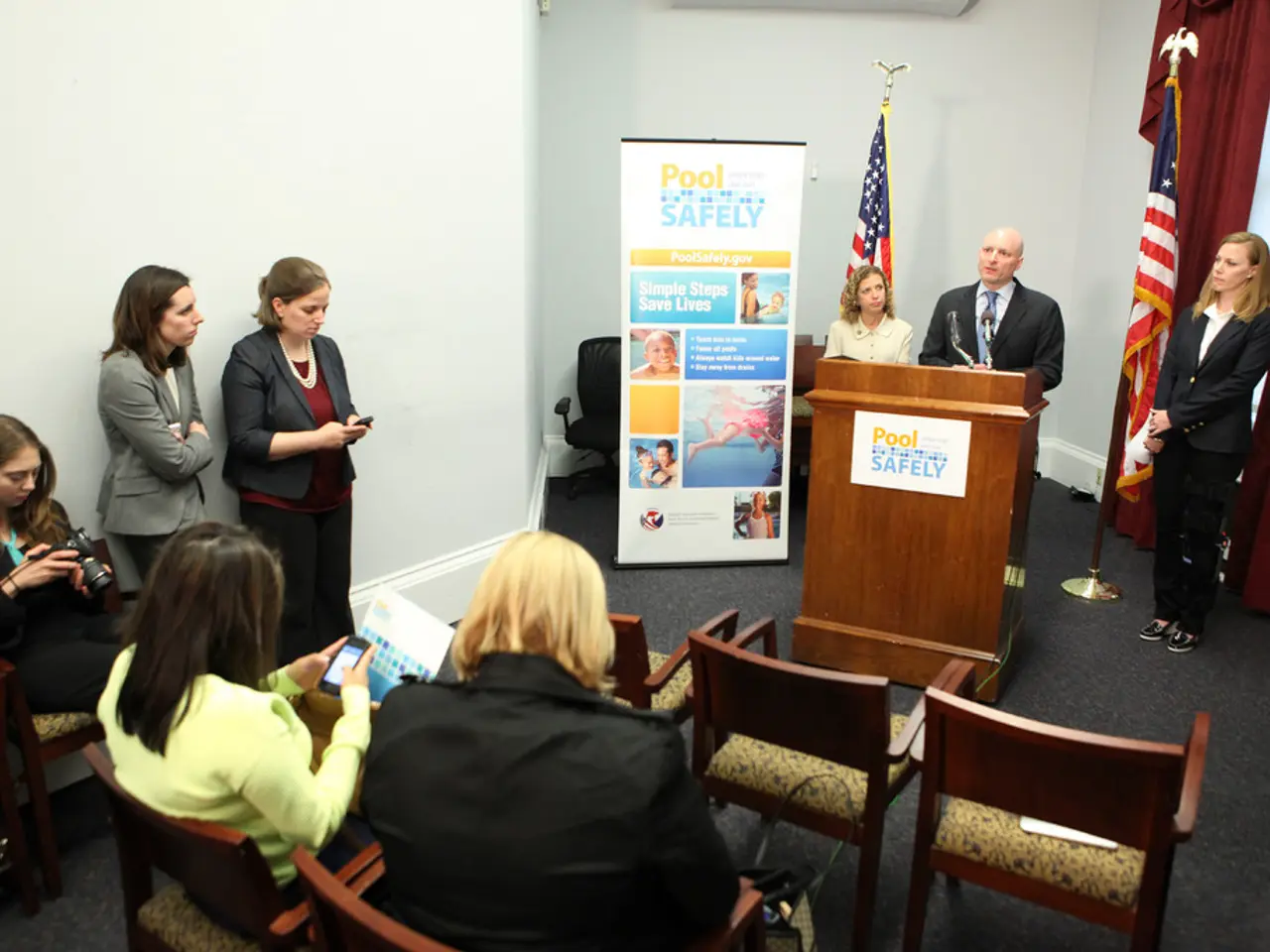Heidi Reichinnek's Bid Stirs Union Doubts; She Aims for Union Seat in Intelligence Oversight Panel
Union Intelligence Seeks Request for Position from Reichinnek
Hang out on Facebook Tweet This WhatsApp it Email this Print this Copy the Link
The Left parliamentary group leader Heidi Reichinnek is making a play for a seat on the Parliamentary Control Panel for the intelligence services; but her suitability is being called into question by the Union, who hold the power to elect her. If Reichinnek fails to secure a position, she's hinted at reconsidering future collaboration.
Reichinnek, at the helm of the Left parliamentary group in the Bundestag, has today put forth her name for the Parliamentary Control Panel (PKGr) election. She's set her sights on the Union, urging them to lay off the groundless accusations and let the Left parliamentary group claim their rightful place on the PKGr. "If this doesn't transpire, we'll have to mull over the future of our cooperation," she told the German Press Agency.
Politics: Left Eyes Union's Seat of Power
The Union claims dependence on the Left in numerous Bundestag areas, particularly when garnering a two-thirds majority for key decisions such as electing constitutional judges or debt brake reform. This afternoon, Bundestag will elect the members of the influential PKGr, which scrutinizes the federal intelligence services. With the Union faction likely to veto Reichinnek, her election prospects appear uncertain.
Union Opposes Reichinnek's Appointment
Reichinnek insists the Union hasn't provided any rationale for her unfitness for this role. The PKGr, Reichinnek states, is essential for German security architecture, and democratic opposition is vital to monitor the intelligence services. The Union faction's leadership seems determined to discourage their members from voting for Reichinnek.
SPD Bundestag member and interior expert Lars Castellucci, however, supports Reichinnek's election. "There's no reason not to vote for her," Castellucci declared to the RND newspapers. "It's crucial that the security authorities are subject to parliamentary scrutiny, especially when the democratic opposition parties play their role."
Politics: CDU/CSU's Suspicions towards the Left
By law, the federal government must inform the PKGr on the general activities of intelligence services and significant events. The PKGr may also request further reports on key developments.
Source: ntv.de, mau/AFP
- The Left
- Intelligence Services
- Union faction
Enrichment Data:
The Union faction, consisting of the CSU (Christian Social Union) and CDU (Christian Democratic Union), has reservations about Reichinnek primarily due to political and ideological concerns. Traditionally, the CSU and CDU have adopted a more conservative stance on intelligence oversight compared to the Left party, leading to the CSU's reluctance to work with Reichinnek.
This resistance stems from deeply-rooted mistrust towards the Left party and their approach to intelligence matters. Reichinnek has been vocal in her criticism of the CDU/CSU, notably concerning their questionable alliance with the far-right AfD (Alternative für Deutschland), strengthening the opposition from the Union[1][2].
The potential fallout in the event of Reichinnek's nomination being denied is substantial. The Union's opposition towards Reichinnek could imply a reluctance to collaborate with the Left on intelligence and security issues, posing a threat to the democratic oversight of intelligence agencies in Germany[1][2][3].
- The Union faction's reluctance to collaborate with Heidi Reichinnek, specifically on the Parliamentary Control Panel for intelligence services, raises questions about the community and employment policies for potential future alliances in the Bundestag.
- The ongoing political tension between the Union faction and the Left party, as demonstrated by the Union's opposition to Reichinnek's appointment to the Parliamentary Control Panel, highlights the necessity of vocational training and understanding in areas such as intelligence oversight, potentially affecting general-news reporting and public discourse.






